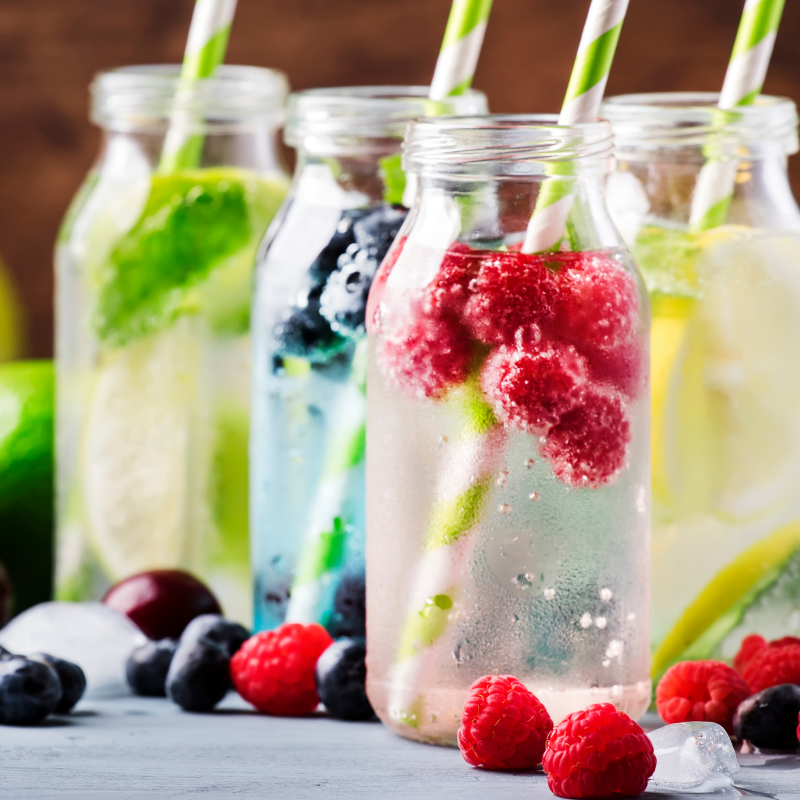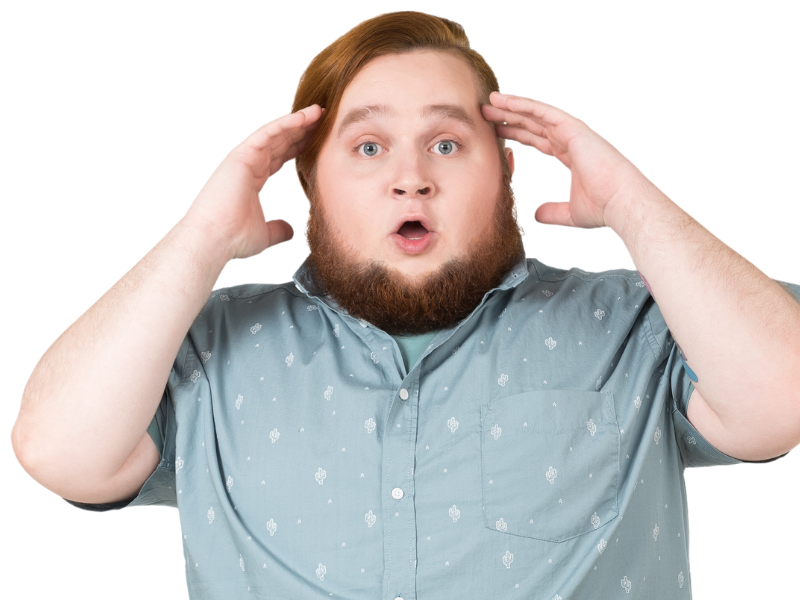You did it. You survived your migraine attack. Your headache pain is gone, the dizziness has faded away, and you’re ready to exit your dark, quiet cave and start living life again.
But just when you thought the migraine storm had passed, the next wave arrives — the migraine hangover. And no, I’m not talking about the kind that comes after a night of bar-hopping.
I’m talking about postdrome – the final phase of migraine that often mirrors how you feel when you’ve had one too many cocktails.
But what exactly is postdrome… and how long does it last? And is there anything you can do to bounce back quicker?
Read on to learn everything you need to know about migraine hangovers, including how to prevent them.
What is Postdrome?
A migraine hangover, or postdrome, is the fourth and last phase of a migraine attack. It happens after the symptoms like pain, nausea, and vomiting fall away.
Not all migraine sufferers experience postdrome. And migraine hangovers don’t happen with every attack. But for some, postdrome can be just as draining as the attack.
It’s important to note that postdrome is NOT a reaction to the attack but rather the last phase of a migraine.
So before we dive into the details on postdrome, let’s briefly review the four migraine phases:
The 4 Phases of Migraine
- Prodrome: Known as the “preheadache” phase, prodrome is when you get clues a migraine may be on the way. During prodrome, you may feel irritable, depressed, have trouble sleeping, yawn a lot, pee more often, and have food cravings. It can last anywhere between a few hours to a couple of days.
- Aura: This phase is marked by visual disturbances such as blind spots, blurry vision, or flashing lights. Some people also feel numbness or tingling in parts of their bodies. Not everyone experiences aura, and it typically lasts between five minutes to an hour.
- Headache: During the “attack” phase, people often feel throbbing pain on one or both sides of the head, along with a long list of other symptoms (read more about them here). Usually, this phase lasts between 4 to 72 hours.
- Postdrome: Once the pain subsides, many people feel exhausted, depressed, and or have lingering neck pain. Research shows that around 81% of migraine sufferers have postdrome symptoms.[1] So let’s dig a little deeper into what you might experience during a migraine hangover.
What Does a Migraine Hangover Feel Like?
Postdrome earned the nickname “migraine hangover” for good reason. Many people feel completely wiped out during postdrome, much like you’d feel after a night of overindulging.
Here are some migraine postdrome symptoms you might notice:
- Feeling tired
- Stiff neck
- Digestive problems
- Nausea
- Trouble concentrating
- Feeling hungry or thirsty
- Moodiness or irritability
- Sensitivity to noise or light

As you can see from the list above, some postdrome symptoms are similar to ones you’d feel during an attack. So the lines between these two phases can be blurry.
How Long Does a Migraine Hangover Last?
You’ll be happy to hear, not all that long. According to one study, 93% of migraine hangovers last around a day. And over half of all postdrome phases were over within 6 hours.1
That’s not to say that migraine hangovers are fun. Clearly, they’re not! But knowing they’re short-lived can help you ride the wave until you feel more like yourself.
Research also shows that the severity of the attack doesn’t affect the length of postdrome. So just because you have an intense attack doesn’t mean your migraine hangover will last longer.
This same study also showed that taking medications during the attack didn’t shorten the duration of the postdrome. But don’t worry – there are some things that may ease your symptoms while you recover.
Migraine Postdrome Treatment: How to Bounce Back
It takes time to recover from a migraine. So be patient and give your body the rest it needs. Once the headache passes, you might be tempted to hop right back to your to-do lists.
But if you overdo it too quickly, you could delay your recovery or even set off another attack. So lay low, get plenty of sleep, and take a day off from work if needed.
Relaxing activities like yoga, meditation, and breathing exercises may also help ease the moodiness and irritability that can come with prodrome. And gentle stretching may help ease body tension and speed up the healing process. Just listen to your body, and don’t overdo it.

Drinking water is also essential during all phases of migraine, including prodrome. So be sure to drink up.
If you experience sensitivity to light during your attack phase, it may linger into prodrome. If that’s the case for you, you’ll want to keep the lights down low and limit your screen time. Electronic devices, while handy, emit blue light and can trigger migraine.[2]
Also, for some people, caffeine can ease migraine symptoms. Yet for others, it can act as a trigger. You know your body best.
Ice packs, heating pads, hot baths, or massage may also offer symptom relief. Everyone has their own unique combo of tools that work best for them. So experiment until you find what works for you.
How to Prevent a Migraine Hangover
The way to prevent a migraine hangover is the same way you’d prevent a migraine attack – by practicing good headache hygiene!
So here are some lifestyle habits that may help keep migraine at bay:
Get quality sleep
Lack of sleep is a common migraine trigger – so prioritizing good sleep hygiene is key. Need help sliding into sleep easier? Try sticking to a regular sleep schedule – even on the weekends, if possible. Limiting screen time an hour before bed, having a winding down ritual, and getting nutritional support are also good places to start. And for more migraine sleep tips, check out this article.
Eat healthy (& avoid your trigger foods)
Certain foods can set migraine off – especially artificial sweeteners and flavors like aspartame and monosodium glutamate (MSG). Alcohol, aged cheeses, chocolate, and cured meats can also pose problems for some. If you need help identifying your trigger foods, this post may help.
To keep things simple, focus on eating plenty of wholesome foods such as fruits, veggies, whole grains, lean protein, nuts, and seeds.
Manage stress
Stress is the #1 migraine trigger.[3] So it’s crucial you do what you can to keep your stress in check. Here are some stress-relieving activities to consider adding to the mix:
- Meditation
- Yoga
- Breathing exercises
- Spending time in nature
- Talking with friends
- Playing with a pet
- Reading
- Gardening
- Listening to relaxing music

Exercise regularly
Having a consistent exercise routine can lessen the frequency of migraine attacks.[4] Exercise also eases stress and improves sleep – both key in migraine prevention. Just be careful not to overdo it, as intense exercise can trigger migraine for some.
Drink plenty of water
Research shows that staying well hydrated reduces the frequency, duration, and severity of migraine attacks.[5] How much water is enough? Aim to drink about half your weight in ounces per day. But keep in mind – during an attack you may need more.
Know your triggers
You can’t avoid your triggers if you don’t know what they are. Using a migraine diary can help you pinpoint what sets you off – and keep track of which treatments work and which don’t. (Download your free migraine diary here.)
Get nutritional support
Certain nutrients, such as magnesium, feverfew, and riboflavin (vitamin B2) are clinical proven to be beneficial for migraine sufferers. Migrelief’s powerful triple-action formula combines all three, providing potent targeted, nutritional support. To learn more about this unique formula, click here.
If you’re in the midst of a migraine hangover, hang in there. Remember, postdrome usually only lasts around a day. The more you can rest and focus on self-care, the quicker you’ll bounce back and feel like your old self.
[1] https://n.neurology.org/content/87/3/309.short
[2] https://academic.oup.com/brain/article/139/7/1971/2464334
[3] https://www.ncbi.nlm.nih.gov/pmc/articles/PMC8088284/
[4] https://www.ncbi.nlm.nih.gov/pmc/articles/PMC6134860/
[5] https://www.jocn-journal.com/article/S0967-5868(20)30941-3/fulltext


